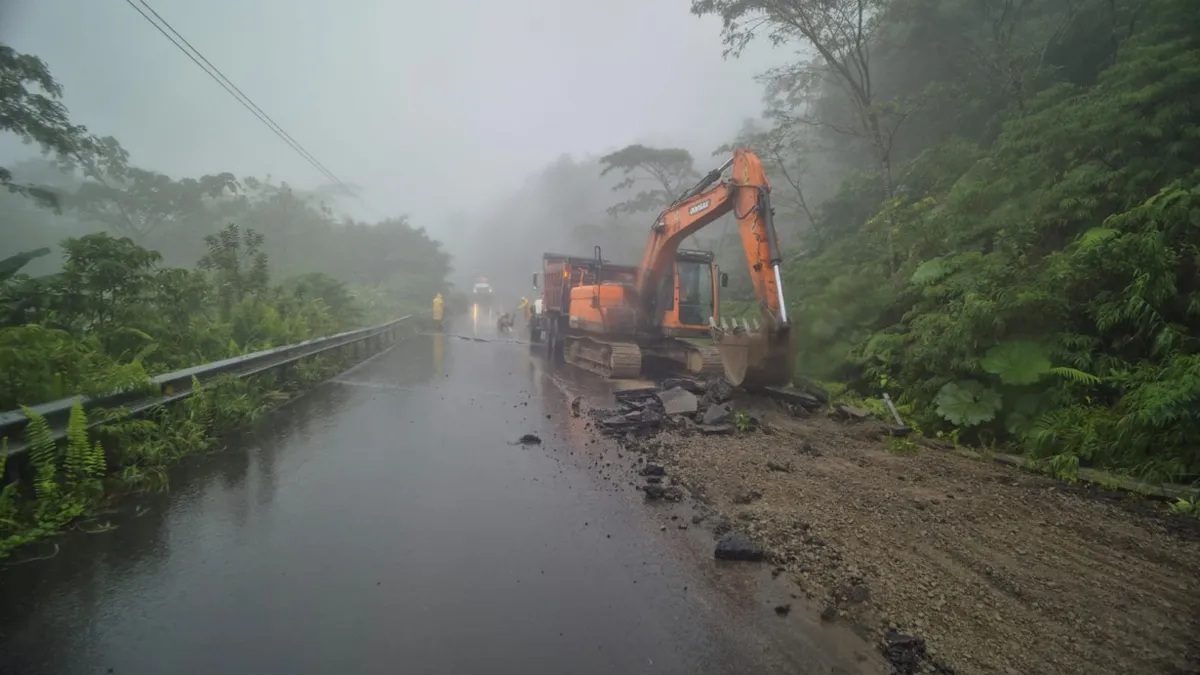WORLD VIEW: Olympics health and environment gold

Now that the Rio Olympic Games have ended, there are many lessons to be learned about the public health and environmental effects brought on by the preparation for, and management of, such a massive gathering of people.
By Roger-Mark Desouza
WINNING GOLD is the ultimate dream of every Olympian. For some athletes, success means the possibility of endorsement, stardom and increased earnings in their home countries and beyond.
 It has been suggested that this commodification of the games is a result of the political, economic, social and cultural forces that shape the Olympics.
It has been suggested that this commodification of the games is a result of the political, economic, social and cultural forces that shape the Olympics.
But there is another opportunity to win gold and it is in learning from the unique health and environmental impacts that come into play at such massive gatherings of people.
The World Health Organization has recognized that international mass gatherings have distinctive health risks.
These encompass a number of hazards including the import and export of disease; delayed access to health care due to unfamiliarity with the health-care system; delayed detection of pathogens by inexperienced health-care systems; the spread of communicable diseases among unvaccinated or vulnerable travelers; and the unknown immunity of participants.
Having so many people concentrated in one area at one time may also subject them to climate and environmental threats.
Weather and environmental conditions can have dramatic impacts on the type of health emergencies that arise during mass gathering events. These conditions include drought, heat waves, blizzards, hailstorms, avalanches, earthquakes and tsunamis.
A 2014 study noted that questions around water supply and quality, public health, sanitation, waste water management, noise pollution and air pollution invariably must be addressed.
Smoking and the dust generated by crowds or vehicles can impact people’s respiratory health and the overall air quality of the event.
Zika virus
In Brazil this year, however, the Zika virus was the outstanding environmental health concern. It is important to have adequate resources and management to remove standing water, which is key to mosquito breeding, in any urban setting, but especially in areas where Zika is known to be prevalent. Higher temperatures are help to spread the virus. The heat allows mosquitos to incubate the virus and encourages more people to be outside and expose more skin. Drought is also a risk factor for the spread of Zika because improper water-storage techniques (i.e. non-covered standing water) create prime breeding grounds for mosquitos.
Ultimately there do not appear to have been any significant Zika impacts tied to the Olympics.
Some experts say the scare should be a wake-up call for a broader conversation about the impact of the every-two-years global meeting though.
World Cup
What are the long- term impacts of such events?
Consider the 2014 World Cup in Brazil: Over 2.7 million tons of carbon dioxide were released during the event, according to FIFA; approximately 80 percent of the emissions came from the air travel of teams and spectators to the event, or almost 2.3 million tons, “equivalent to the CO2 produced by 560,000 cars in a year, or 136,000 American homes.”
Additionally, there were various long-lasting social and economic impacts on the local people.
Approximately 170,000 people were reportedly displaced from their homes to basic huts without electricity and water. This could have major impacts in terms of access to health care. (Indeed, consider what impact the decline in sanitation and access to contraception, pre-natal care and information about mosquito control may have had on the Zika outbreak two years later.)
There are also benefits. Some researchers have investigated how participation in mass events may result in an increase in psychological well-being.
Condoms
Others suggest that such events provide opportunities for training, surveillance and innovations in dealing with circumstances that governments otherwise may be little prepared for.
Indeed, officials organizing the Rio Games learned a lesson from previous Olympics and increased the distribution of condoms to 42 per athlete, more than any other games, giving out 450,000 condoms overall.
Lessons such as these provide insights for mass gathering situations of all kinds and similar systems, including metropolitan subway systems, large shopping complexes, airports, cruise ships, public demonstrations and refugee camps.
As the world deals with terror attacks, population pressures and displacement of people, it will become more critical to learn from large gatherings like the Olympics and to strive for gold beyond the medal count.
Roger-Mark De Souza is the director of population, environmental security, and resilience for the Woodrow Wilson Center in Washington D.C. where he leads programs on climate change, reproductive and maternal health, environmental security, and livelihoods.





